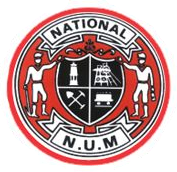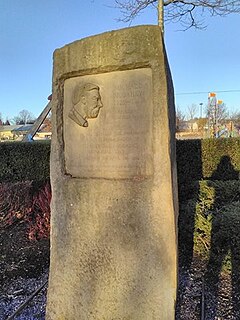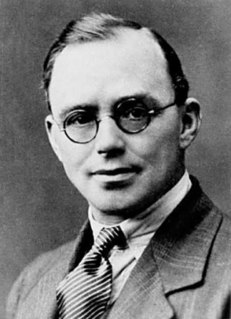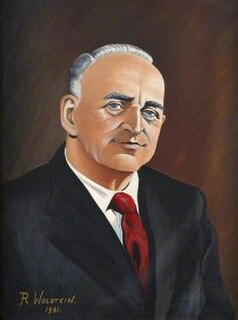Related Research Articles

The miners' strike of 1984–1985 was a major industrial action to shut down the British coal industry in an attempt to prevent colliery closures. It was led by Arthur Scargill of the National Union of Mineworkers (NUM) against the National Coal Board (NCB), a government agency. Opposition to the strike was led by the Conservative government of the Prime Minister, Margaret Thatcher, who wanted to reduce the power of the trade unions.

The National Union of Mineworkers (NUM) is a trade union for coal miners in Great Britain, formed in 1945 from the Miners' Federation of Great Britain (MFGB). The NUM took part in three national miners' strikes, in 1972, 1974 and 1984–85. After the 1984–85 strike, and the subsequent closure of most of Britain's coal mines, it became a much smaller union. It had around 170,000 members when Arthur Scargill became leader in 1981, a figure which had fallen in 2015 to an active membership of around 100.
The National Minority Movement was a British organisation, established in 1924 by the Communist Party of Great Britain, which attempted to organise a radical presence within the existing trade unions. The organization was headed by longtime unionist Tom Mann and future General Secretary of the CPGB Harry Pollitt.

Michael McGahey was a Scottish miners' leader and lifelong Communist, with a distinctive gravelly voice. He described himself as "a product of my class and my movement".
Peter Heathfield was a British trade unionist who was general secretary of the National Union of Mineworkers (NUM) between 1984 and 1992, including the period of the miners' strike of 1984/85.

Arthur Lewis Horner was a Welsh trade union leader and communist politician. During his periods of office as President of the South Wales Miners Federation (SWMF) from 1936, and as General Secretary of the National Union of Mineworkers (NUM) from 1946, he became one of the most prominent and influential communists in British public life.
Lawrence Daly was a coal miner, trade unionist and political activist.

The National Union of Scottish Mineworkers (NUSW) is a trade union in Scotland, founded in 1894 as the Scottish Miners Federation. It joined the Miners' Federation of Great Britain, and in 1914 changed its name to National Union of Scottish Mineworkers. It survives as the National Union of Mineworkers.

Arthur Scargill is a British trade unionist who was President of the National Union of Mineworkers (NUM) from 1982 to 2002. He is best known for leading the 1984–1985 miners' strike, a major event in the history of the British labour movement.

The Communist Party of Great Britain (CPGB) was the largest communist party in Great Britain between 1920 and 1991. Founded in 1920 through a merger of several smaller Marxist parties, the CPGB gained the support of many socialist organisations and trade unions following the political fallout of the First World War and the Russian October Revolution. Ideologically the CPGB was a socialist party organised upon Marxism–Leninist ideology, strongly opposed to British colonialism, sexual discrimination, and racial segregation. These beliefs led many leading anti-colonial revolutionaries, feminists, and anti-fascist figures, to become closely associated with the party. Many prominent CPGB members became leaders of Britain's trade union movements, including Jessie Eden, Abraham Lazarus, Ken Gill, Clem Beckett, GCT Giles, Mike Hicks, and Thora Silverthorne.
Steve Kemp is a British trade unionist.
Peter Edward Carter was a British trade unionist.

Abraham Moffat was a Scottish trade unionist and communist activist. He was elected repeatedly to high office in the trade unions and represented the union on government coal boards. He held major union offices: President of the National Union of Scottish Mine Workers; member of the Executive Committee of the Miners' Federation of Great Britain; Vice-Chairman Scottish Regional Coal Board; and member National Coal Board. He served as president of the union from 1942 to his retirement in 1961, when he was succeeded by his younger brother Alex Moffat, also an activist.
Alexander B. Moffat was a Scottish trade unionist and communist activist who was President of the Scottish Trades Union Congress and the Scottish Mineworkers Union.
William Pearson was a Scottish trade unionist and communist activist.
Sammy Thompson was a British trade unionist.
William McLean was a Scottish trade unionist.
Nicky Wilson is a British trade unionist.
David Proudfoot was a Scottish trade unionist.
David R. Llewellyn was a Welsh trade unionist and political activist, who also fought in the Spanish Civil War.
References
- ↑ John McIlroy et al, The Struggle for Dignity, p.186
- ↑ Ed. Arthur McIvor and Ronald Johnston, Miners' Lung: A History of Dust Disease in British Coal Mining, p.207
- ↑ Labour History Review, No.44-50, p.57
- 1 2 Ed. Keith Laybourn, Christine F. Collette, Modern Britain Since 1979: A Reader, p.190
- ↑ Seumas Milne, The Enemy Within: The Secret War Against the Miners , pp.70, 269
- 1 2 Geoffrey Goodman, The Miners' Strike, p.199
- ↑ The Weekly Review, 11 January 1978, p.15
- ↑ Charles Hobday and Roger East, Communist and Marxist parties of the world, p.89
- ↑ New Statesman , No.234-250, p.6
- ↑ Michael Fathers, "The long walk is over, so the miners take to a bus", The Independent , 20 December 1992
- ↑ Rob Robertson, "Rob Robertson meets the union leader working at the coal face in the fight to save Monktonhall Digging deep for survival", The Herald , 16 May 1997